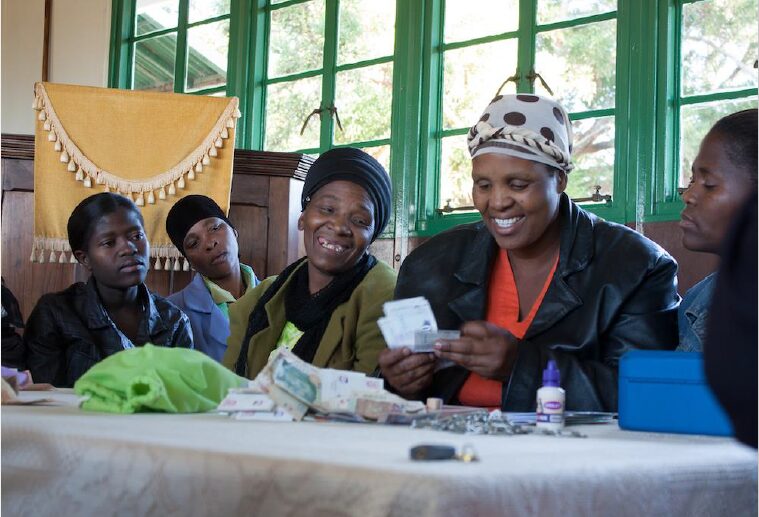
Khulisa Management Services has 25 years’ experience in Monitoring & Evaluation (M&E), research, learning and data quality assurance services for governments, donors and foundations across the globe.
M&E capacity building is central to our approach. Since inception, Khulisa has focussed our efforts on advancing the understanding and quality of M&E in Africa.
We are now offering M&E Courses to build on this goal.
Here’s what you need to know:
Who should do Khulisa’s M&E Course?
The course is offered to experienced technical professionals equipping them with key M&E skills to implement and manage M&E systems in their own organisations.
What are the requirements?
An undergraduate degree and some work experience with an interest in M&E.
You will need a laptop that has Microsoft Office 2013 or higher.
You will need to have basic Excel skills.
What is the course duration?
To complete the full course will take between 6 and 8 months on a part-time basis. The four modules are offered over 5 days and practical work-place assignments are required between the modules.
How will I be assessed?
The course comprises practical assessments between each module and feedback is provided.
Assessment will include peer reviews, self-review, trainer assessments, pre and post surveys and a Portfolio of Evidence.
Will I be required to do assignments?
Yes, after every module you will be required to engage your colleagues in activities to complete your assignments. These will all contribute to a Portfolio of Evidence and will be assessed.
Where will the training take place?
The training will be in Johannesburg.
Course dates:
| Module 1 — February 27-28 2019 |
| Module 2 — April 03 2019 |
| Module 3 — May 29 2019 |
| Module 4 — July 31 2019 |
| Assignment due 30 August 2019 |
| Final Feedback and Graduation 2 October 2019 |
Application deadline:
31 January 2019
What do I need to apply?
- CV
- Letter of commitment with authorisation from your employer or organisation
- A copy of your ID or Passport
How do I apply?
Click on the link … (PS have the documents ready to upload to make it easier for yourself)
When will I know I have been accepted?
Monday 12 November 2018
Please note that the course is limited to a maximum of 25 participants. If the course is fully booked we will book you on the next course. Selection will be on a first applied basis.
Payment details:
Once you are registered Khulisa will issue you an invoice.
Invoices must be paid before the training begins (by the 31 January 2019)
Other details
Type of learning: Face-to-Face and experiential; mentoring provided
Accreditation: Currently non-accredited, currently applying for accreditation
Costs: R11,000 excluding VAT per person. A discount is offered if 2 or more people from the same organisation register.
Other options and bespoke M&E training are available on request.

How will this training benefit you and your organisation?
By the end of the training you will have increased your M&E knowledge and skills in the following:
|
Document organisational M&E Strategy based on a clear Theory of Change |
Demonstrate results to funders, staff, development community |
Ability to use higher quality data for informed decision-making |
|
Ensure accountability to clients and partners |
Produce reports for internal and external use |
Know how to write a clear evaluation brief |
Learning outcomes
M&E Overview (2 days)
- Understand and overcome fears about M&E
- Develop a Theory of Change (and Theory of Action)
- Select appropriate, useful indicators
- Adhere to ethical standards, especially relating to Protection of Personal Information (POPI) Act
- Develop an M&E strategy
Data Quality (1 day)
- Design an appropriate data management systems (DMS)
- Ensure your DMS produces quality usable data
- Develop tools to assess data quality and identify data quality risks and take remedial action
- Build feedback loops that increase data quality
Data Analysis (1 day)
- Develop basic data analysis skills (quantitative and qualitative)
- Visualise the data
- Interpret the data for internal use, stakeholders and donors
Reporting (1 day)
- Write reports for internal use, stakeholders and donors
- Conduct internal evaluation versus external evaluation
- Ensure that your external evaluation terms of reference gets you the best evaluator and manage their work
- Build recommendations with your stakeholders and monitor performance
Complete application form
FREQUENTLY ASKED QUESTIONS
Who should do Khulisa’s M&E Course?
The course is offered to experienced technical professionals equipping them with key M&E skills to implement and manage M&E systems in their own organisations.
What are the requirements?
An undergraduate degree and some work experience with an interest in M&E. You must have basic Excel skills.
What is the course duration?
To complete the full course will take between 6 and 8 months on a part-time basis. The four modules are offered over 5 days and practical workplace assignments are required between the modules.
How will I be assessed?
The course comprises practical assessments between each module and feedback is provided. All the assignments will contribute to a Portfolio of Evidence. Assignments are peer reviewed using an appreciative approach first and after changes have been made will be assessed by Khulisa. Feedback is given to each participant.
What do you mean peer-reviewed? Will I have to assess others on the course?
Yes, you will be one of the peer reviewers of two other assignments per module. Likewise
Must I be part of an organisation to do this course?
Yes. The assignments are practically based and you must engage your organisation in the development of them.
What if I am not part of an organisation?
If you are not part of an organisation, then you must find an organisation that you can work with to develop the M&E framework and systems. This organisation must commit in writing to working with you during the course.
Will this take much time for my colleagues in my organisation?
Some of the tasks will require interaction with your colleagues, for example, you will be expected to run a Theory of Change workshop with your colleagues.
What type of learning will it involve?
Face-to-Face and experiential; group and individual work; individual assignments that demonstrate use of the new skills in your workplace and mentoring provided.
What if I cannot make the dates as scheduled?
If you cannot make the training dates starting in February 2019 please complete the form and you will have an option to put your name down for a later training course.
Must I attend all modules?
To get the most out of this course you must attend all modules. If you cannot attend one of the modules please inform Khulisa. You will still need to complete the assignments. If you miss more than one module you will need to attend the next training course in order to complete the course and receive a certificate.
Is the training accredited?
Non-accredited, currently applying for accreditation.
Will I receive a certificate at the end of the training?
Yes certificates are available to participants who complete the course, submit their Portfolio of Evidence and are deemed competent.
What must I bring to the training course?
A laptop is required.
What does the course cost?
The cost is R11,000 per participant (excluding VAT). Full payment is required before the final module. An invoice will be issued upon acceptance of your registration. Payment can be made via an EFT, debit order or?? Payment may be made over a six-month period with prior approval.
MORE ABOUT SDL:
Can my organisation claim SDL for this training?
You can claim a percentage of the costs back if your organisation is registered and pays the Skills Development Levy.
What is Skills Development Levy (SDL)?
SDL is a levy imposed to encourage learning and development in South Africa and is determined by an employer’s salary bill. The funds are to be used to develop and improve skills of employees.
Who must pay SDL?
SDL is due by employers who have been registered. You can register once for all different tax types using the client information system.
Top Tip: Where an employer expects that the total salaries will be more than R500,000 over the next 12 months, that employer becomes liable to pay SDL.
Source: http://www.sars.gov.za/TaxTypes/SDL/Pages/default.aspx
How does my company claim skills levies?
To put the Skills Development legislation into context, it essentially provides an enabling framework to increase the volumes of education and training, while, simultaneously, improving the quality of that same education and training. The strategy embodied by this legislation has elements of ‘push’ and ‘pull’ in it (in other words, ‘stick’ – pay a Skills Development Levy (SDL) and ‘carrot’ – claim something back from your SDL).
How can your company claim from the skills levies?
- Contribute towards the Skills Development Levies (SDL)
Check if you are registered for Skills Levies. If you are not registered, you must visit your nearest South African Revenue Services (SARS) offices and complete the applicable form. SARS official will be able to assist with the completion of the form. They will ensure you pay regularly.
- Be registered with your SETA
SARS determine to which SETA the company belongs and thus which SETA levies should be paid too.
- Submit your Workplace Skills Plan (WSP) and Annual Training Report (ATR) for 1 April – 30 March of the following year by 30 June of that same year.
Appoint a Skills Development Facilitator (SDF). The SDF should be registered with the applicable SETA) The SDF is responsible for planning, implementation and reporting SETA on training in the company. He must facilitate the consultation process in the development of the Workplace Skills Plan (WSP) and Annual Training Report (ATR), follow up on the payment of levies to SARS also submit WSP and ATR
You can claim for training that isn’t given by SETA-accredited companies. You can claim for structured, internal, day-to-day training and learnerships. It is imperative to directly contact the SETA your company is registered with to enquire how to claim for these expenses. Procedures differ vastly for each SETA.
Please note that each Seta’s requirements may differ. Please contact your applicable Seta directly and propose a meeting
Source: https://www.skillsacademy.co.za/company-claim-skills-levies/


